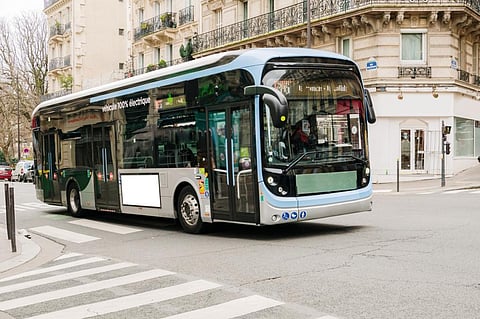

Developed countries benefit the most from green technologies such as artificial intelligence, Internet of Things and electric vehicles and this can deepen global economic inequality, warned the United Nations Conference on Trade and Development (UNCTAD).
Developing countries may miss out on the economic opportunities resulting from green technologies if governments and international bodies do not take decisive action, the UN body said in the Technology and Innovation Report 2023 published March 16, 2023.
Green technologies can create a market worth $9.5 trillion (about three times the current size of the Indian economy) by 2030, up from $1.5 trillion in 2020, UNCTAD estimated.
The researchers analysed 17 key frontier technologies. These include artificial intelligence, Internet of Things, big data, blockchain, 5G, 3D printing, robotics, drone technology, solar photovoltaic, concentrated solar power, biofuels, biogas and biomass, wind energy, green hydrogen, electric vehicles, nanotechnology and gene editing.
These technologies are used to produce goods and deliver services with smaller carbon footprints.
The total exports of green technologies from developed countries jumped to more than $156 billion in 2021 from about $60 billion in 2018, the report found.
At the same time, exports from developing countries rose to only about $75 billion from $57 billion.
According to the ‘frontier technology readiness index’ included in this report, only a few developing countries have the capacity needed to take advantage of frontier technologies such as blockchain, drones and solar power.
The frontier technology readiness index ranks 166 countries based on information and communication technology (ICT) skills, research and development, industrial capacity and finance indicators. The index is currently led by high-income economies such as the United States, Sweden, Singapore, Switzerland and the Netherlands.
Green frontier technologies such as electric vehicles, solar and wind energy as well as green hydrogen are expected to reach a market value of $2.1 trillion in 2030, four times greater than their value today. Market revenues for electric vehicles could rise five times to reach $824 billion by 2030 from today’s value of $163 billion.
Although developing countries are the least prepared to use frontier technologies, several economies in Asia have made important policy changes that have enabled them to perform better than expected according to their gross domestic product per capita.
India remains the greatest performer, ranking at 67 positions better than expected, followed by the Philippines (54 positions better) and Vietnam (44 better).
The index shows that countries in Latin America, the Caribbean and sub-Saharan Africa are the least ready to harness frontier technologies and are at risk of missing current technological opportunities.
UNCTAD calls on governments in developing countries to align environmental, science, technology, innovation and industrial policies. It urges them to prioritise investment in greener and more complex sectors, to provide incentives to shift consumer demand towards greener goods and to boost investment in research and development.
The UN body highlighted that developing countries cannot take advantage of green technologies on their own. Much of the success of their domestic policies will depend on global cooperation through international trade, which would require reforms to existing trade rules to ensure consistency with the Paris Agreement to tackle climate change.
International trade rules should permit developing countries to protect emerging green industries through tariffs, subsidies and public procurement, so that they not only meet local demand but also reach the economies of scale that make exports more competitive, the authors of the report said.
They also urged the developed countries to provide a helping hand to their less well-off counterparts and ensure all nations can participate and take full economic advantage of the green tech revolution.